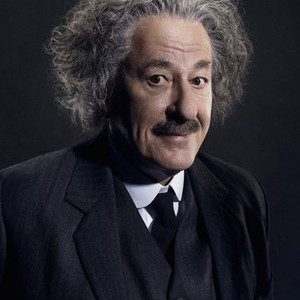
You play what he does, and in that action you might get a glimpse of where the brilliance is. "I don't think I ever try to put on a 'genius face' where everyone goes 'he's so f-ing bright'," Rush says. Rush says he didn't play Einstein as a genius, just as he wouldn't play an alcoholic as "somebody who's constantly waving and weaving". Like any good story it's the journey of a very flawed hero." And Ron says one of the things the show is about is how close Einstein came to not being Einstein. He was a bohemian, he had an artistic, visual, iconoclastic approach to science. "We approached as though he was an artist. His life was intimately woven up with all the major events of the 20th century – two world wars, the rise of fascism. He had this fantastic Zelig-like quality, he knew everyone and he was everywhere. "His life wasn't just the life of his mind, he was a towering figure in the 20th century. It made some scenes in Genius eerily familiar.Įxecutive producer and showrunner Ken Biller says Genius is more than just an Einstein biopic. She's been Rush's on-screen wife twice already – opposite his Peter Sellars and his Hans Hubermann (The Book Thief). The makers of Genius also took no chances with another character – Einstein's second wife (and first cousin) Elsa – played by acclaimed actress Emily Watson. He helped me understand that and just get on with it." He has the kind of presence one would expect from an Oscar winner, but the flat dialogue and. He talked about what worked when he did that … they didn't look anything like each other but they were brilliant performances that didn't leave the audience frustrated. As the middle-aged Einstein, Rush sports a prosthetic nose and the expected nimbus of grey hair. "He's done this before in Shine, he played the older character to a younger character. " got in touch immediately and extended a hand and was extremely generous," Flynn says. They found odd adjectives to describe Einstein – "he's lunar, he's twinkly". They interviewed each other in character, even wrote letters to each other in "cod Einstein", Flynn says. They ran a physical workshop, shared a dialogue coach and discussed how their roles would join at the temporal seam. He also worked with the actor playing his younger self – Englishman Johnny Flynn. He studied the dialogue closely and tweaked it – one writer said he brought more humour to the role.

He visited the costume designers and wig-makers, even questioning the length of the crotch in his trousers – he wanted it longer to project the stockier look of Einstein. Rush was meticulous about hair, make-up and prosthetics (with three fake tummies for different stages in Einstein's life).


 0 kommentar(er)
0 kommentar(er)
